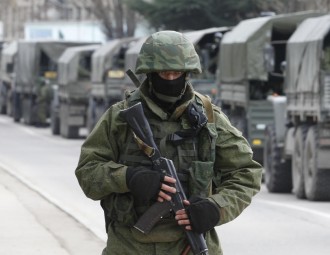Mikalai Statkevich: Before the presidential election 2018 Russia may want to absorb Belarus
 REUTERS
REUTERS
In order to show that at least some success is achieved, the Kremlin may want to absorb Belarus into the Russian Federation, the opposition politician says.
Is Russia’s influence significant in Belarus? What are two main drawbacks of the Belarusian army? What is the main threat to our independence? What can we do to protect ourselves? Mikalai Statkevich, a former presidential candidate and political prisoner, answers the questions of journalist Siarhei Peliasa in program ‘World and Us’.
“Russia is exerting an enormous influence on Belarus using, among other ways, the so called Union State. It aims at establishing a joint parliament and government, having a single president and a single currency, etc. Taking into account Russia’s land area, the Union State just set a goal to deprive Belarus of its independence,” Mikalai Statkevich said on Belsat TV.
Belarus is fully dependent on Russia as its economy is not able to survive without Russian loans and energy resources. The Belarusian culture is being destroyed, the Belarusian language has been al most destroyed, the Russian mass culture is dominant, Belarusians mainly watch Russian TV channel and therefore, they are affected by the Kremlin’s propaganda, the politician stated.
“Before the presidential elections in Russia in 2018, in order to show that at least some success is achieved, the Kremlin may want to absorb Belarus into the Russian Federation. They need to present something to the nation in the run-up of the election. Now Russia is giving less money [to Lukashenka – Belsat], but its demands are growing more and more. And now it wants our state,” Statkevich stressed.
In his opinion, the Belarusian army is well-disciplined and good enough, although it is being underfunded and lacks up-to-date aviation and air defense equipment. Another drawback is that Belarusian armed forces have never been brought in the spirit of patriotic duty to their own country; it is still a ‘unit’ of the Russian army, Statkevich added.
“Interestingly, it is our main ally that is posing the main threat to the independence of Belarus. The army is not mature enough to defend the country [from the eastern neighbour <…> Putin, even not Lukashenka, is an iconic figure for many Belarusian officers,” Mikalai Statkevich, a retired Lieutenant Colonel, said.
-
03.01
-
07.10
-
22.09
-
17.08
-
12.08
-
30.09








































